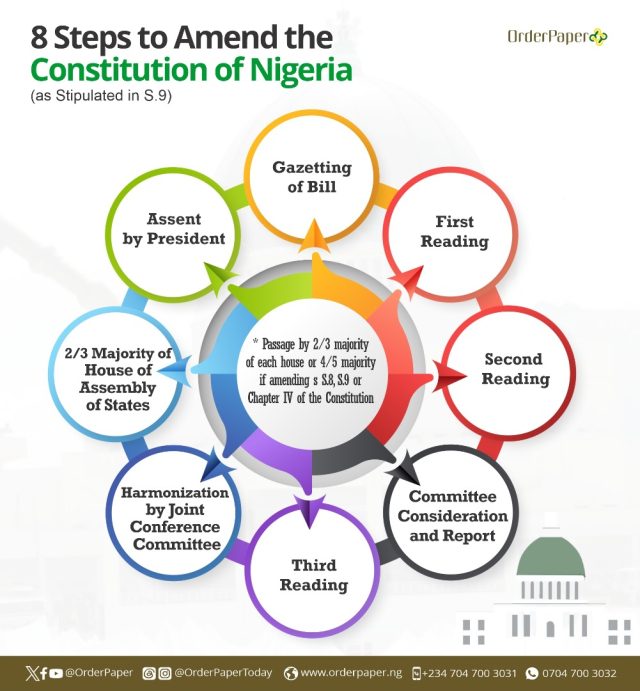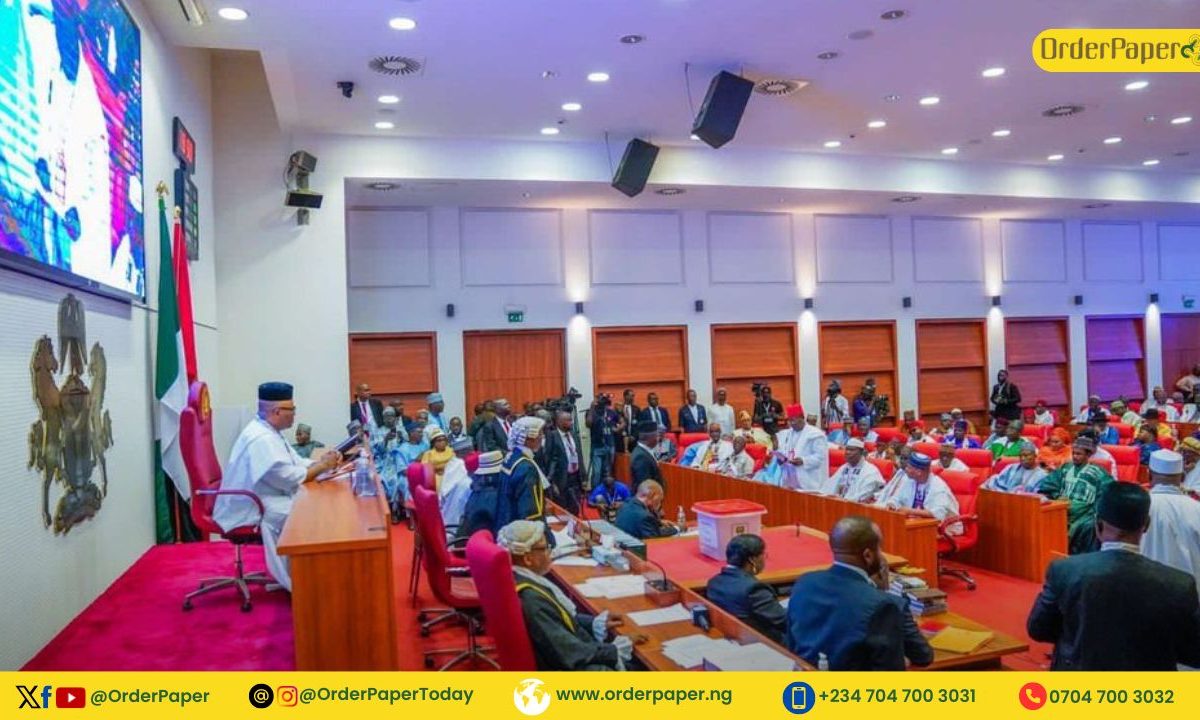It is often said that ignorance of the law is not excuse for violation. But it is even more important to know that apathy of the law-making process is a surrender to whatever comes your way, be it good or bad representation. In a previous piece, we already outlined the steps of how bills become laws. Now, we’re taking it a step further by defining the key terms, phrases, and processes involved in this process, in very simple terms.
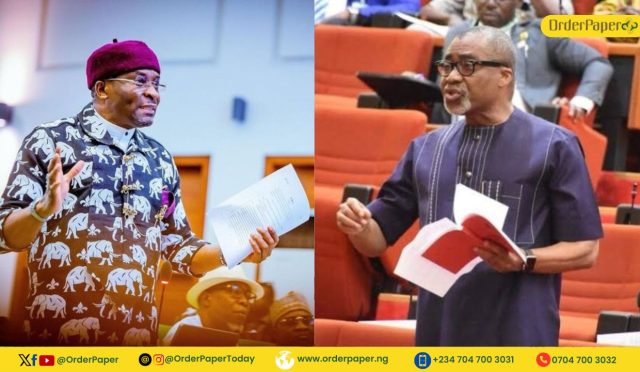
Key Terminologies on Bills
Law: A law is a rule made by the government to maintain order in the country.
Bill: A bill is a proposed law that is before the legislature for approval.

Who makes the laws: Laws are made by individuals known as lawmakers.
Private member bill: The bill is proposed by a lawmaker in the House (House Bill/HB) or Senate (Senate Bill/SB).

Executive bill: The bill is proposed by the President.
Establishment bill: The bill is proposed to create an institution, agency or corporation.
Amendment bill: The bill is proposed to adjust an already existing law to make it better and improve its functionality.
Appropriation bill: The bill revolves around the budget of the federation.
Constitutional bill: The bill seeks to amend the constitution.
Repeal and re-enactment bill: The bill seeks to replace an ongoing law with a new law.
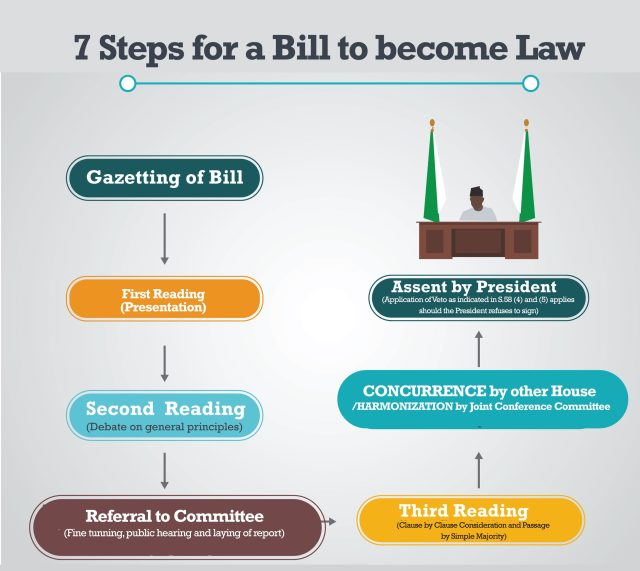
Gazetting: The bill is published for public notice before the national assembly considers it.
First reading: The bill is formally introduced on the floor of either the Senate or House of Representatives.
Awaiting second reading: Only the short title has been read out to members or senators as the case may be and the bill is awaiting debate in plenary.
Second reading: The bill is debated by lawmakers, adopted and referred to a standing/special committee for further legislative work.
Public hearing/committee consideration: The bill is reviewed in detail with inputs from concerned stakeholders and the general public.
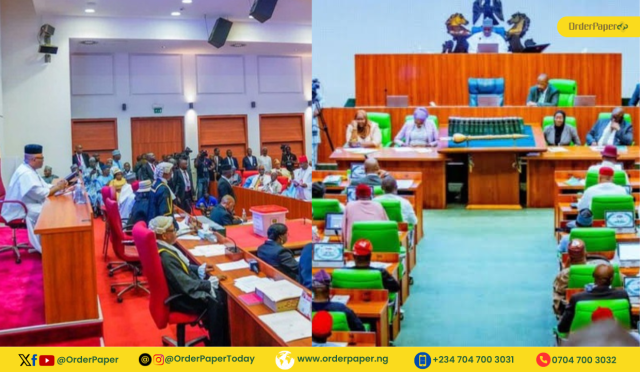
Committee of the whole: The report is considered by a committee that all lawmakers serve in, usually during plenary or either the Senate or House of Representatives.
Third reading: The output from the committee bill was referred to is subject to final review at plenary and passed by members or senators present.
Consolidated bill: When a bill is merged with another of similar nature.
Negatived: The bill did not receive the necessary support to advance through the legislative process.
Passed by House/Senate and transmitted for concurrence: The bill has been passed by either the House or Senate and sent to the other chamber to do same.
Concurrence: The bill is approved by one chamber after being passed by the other, without any changes.
Awaiting report: The bill has been referred to a specific committee for further legislative work.
Awaiting consideration: The bill has been committed to the Committee of the Whole House for consideration.
Recommitted/recommittal: The bill is sent back to a committee for further review, modification, or additional consideration.
Debate adjourned: Discussion on the bill was temporarily suspended or postponed to a later time or date.

Signed into law: The final approval of the bill by the president before it becomes a law.
Veto override: The bill is passed into law regardless of presidential assent, by a two-thirds majority vote in both chambers of the national assembly.
Resurrected bill: The bill was considered in the past assembly but is reintroduced in the current assembly.
Read Also: 7 steps of how bills become laws.
Why this knowledge is important to holding your lawmaker to account
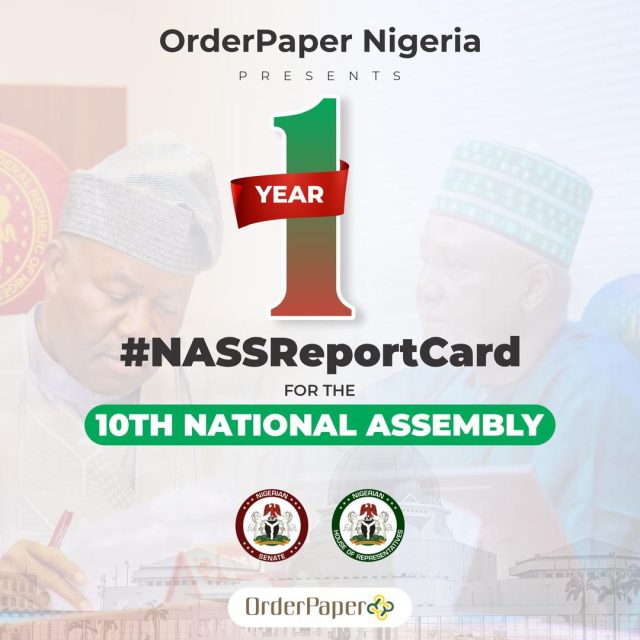
In the coming days, OrderPaper will be publishing its highly anticipated annual appraisals for the first year of the 10th National Assembly. Stay tuned to this website and our social media platforms so you wouldn’t miss out.

